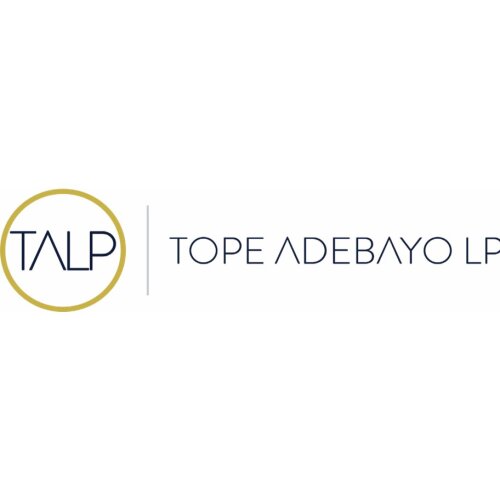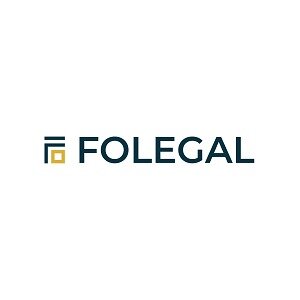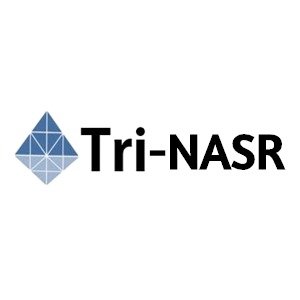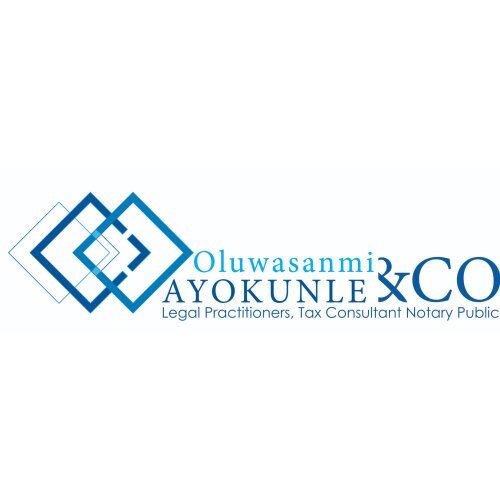Best Renewable & Alternative Energy Lawyers in Ikeja
Share your needs with us, get contacted by law firms.
Free. Takes 2 min.
List of the best lawyers in Ikeja, Nigeria
About Renewable & Alternative Energy Law in Ikeja, Nigeria
Renewable and alternative energy law in Ikeja, Nigeria governs the development, usage, and regulation of clean energy sources such as solar, wind, hydropower, and bioenergy. As a rapidly urbanizing part of Lagos State, Ikeja is experiencing significant energy demand growth, prompting increased attention towards sustainable and environmentally friendly power solutions. Regulatory frameworks, incentives, and government policies aim to promote investment in the renewable energy sector, ensure environmental protection, and align with global climate change mitigation commitments.
Why You May Need a Lawyer
Engaging a lawyer can be essential when dealing with the legal complexities of renewable and alternative energy projects and transactions in Ikeja. Some common situations where legal advice may be required include:
- Drafting and reviewing contracts for the purchase, installation, or maintenance of renewable energy systems.
- Securing licenses and permits for renewable and alternative energy projects.
- Navigating compliance with local, state, and federal regulations.
- Resolving disputes that may arise between parties, such as contractors, landowners, and utility providers.
- Protecting intellectual property relating to new renewable technologies.
- Advising on government incentives, grants, and financing for clean energy projects.
- Managing environmental impact assessments and other regulatory requirements.
- Addressing land use and zoning concerns for project siting.
- Assisting with mergers, acquisitions, or joint ventures in the renewable energy sector.
- Ensuring compliance with power purchasing agreements and contracts with energy distribution companies.
Local Laws Overview
The legal framework for renewable and alternative energy in Ikeja is shaped by both national and Lagos State policies. Key aspects include:
- National Energy Policy and Renewable Energy Master Plan - These national frameworks aim to diversify Nigeria's energy mix and encourage private sector participation in renewable energy.
- Nigeria Electricity Regulatory Commission (NERC) Guidelines - NERC is the main regulatory authority overseeing the generation and distribution of electricity from renewable sources, licensing, and tariff setting.
- Lagos State Electricity Policy - This state-level guideline focuses on expanding access to clean energy, especially through independent power projects and mini-grid initiatives in Ikeja and surrounding areas.
- Environmental Impact Assessment (EIA) Act - Renewable energy projects are required to undergo environmental assessments to mitigate potential negative impacts.
- Land Use Act - Securing land for renewable energy facilities in Ikeja must comply with land tenure and property rights regulations.
- Importation and Tax Policies - Incentives such as customs duty waivers and tax holidays are available for eligible renewable energy equipment and projects.
Frequently Asked Questions
What types of renewable energy are commonly used in Ikeja?
The most common forms include solar photovoltaic (PV) systems, small-scale wind turbines, and bioenergy projects, as well as some mini-hydropower installations.
Do I need a license to generate electricity from renewable sources for my home or business?
Yes, for generation above certain thresholds, you may need a license from NERC. For small, off-grid systems, formal licensing might not be required but compliance with safety and technical standards is important.
What government incentives exist for renewable energy in Ikeja?
Incentives include tax holidays, import duty exemptions for renewable energy equipment, and grants for specific project types. These incentives are subject to government policies and may change over time.
Can I sell electricity generated from renewable sources back to the grid?
Yes, but this requires a Power Purchase Agreement with a distribution company and compliance with NERC regulations. Not all systems are eligible, and grid connectivity may involve technical assessments.
What permits are required to set up a solar power system in Ikeja?
Depending on capacity, you may need permits from state authorities, local government, and NERC. Environmental Impact Assessments might also be required for large installations.
What are the typical legal challenges faced by renewable energy developers?
Challenges include land acquisition issues, lengthy permitting processes, contract disputes, and adhering to evolving regulatory standards.
How can disputes related to renewable energy projects be resolved?
Disputes may be resolved through negotiation, mediation, arbitration, or litigation depending on the nature of the disagreement and relevant contractual provisions.
What legal considerations should I keep in mind when importing renewable energy equipment?
Comply with customs regulations, ensure equipment meets Nigerian technical standards, and leverage any available import duty waivers or incentives for renewable energy products.
Are there special building codes or standards for renewable energy installations?
Yes, there are technical and safety standards set by NERC, Lagos State authorities, and relevant professional bodies to ensure proper installation and operation of renewable energy systems.
Why is it important to have legal review of my renewable energy contracts?
A legal review helps identify potential risks, ensures compliance with laws, protects your interests, and clarifies the responsibilities of all parties involved in a renewable energy transaction.
Additional Resources
- Nigeria Electricity Regulatory Commission (NERC) - Main regulatory agency for electricity and renewable energy projects.
- Lagos State Ministry of Energy and Mineral Resources - Oversees energy policy implementation and renewable initiatives in Lagos State.
- Nigerian Energy Support Programme (NESP) - A partnership programme offering technical assistance and support for alternative energy projects.
- Renewable Energy Association of Nigeria (REAN) - Industry association supporting the growth of renewable energy businesses in Nigeria.
- Federal Ministry of Power - Develops national energy policy and supports renewable energy development.
Next Steps
If you need legal advice or assistance with renewable and alternative energy matters in Ikeja, consider the following steps:
- Identify your specific legal needs, such as licensing, contract negotiation, project financing, or regulatory compliance.
- Gather all relevant documents or information related to your project or inquiry.
- Consult a lawyer specializing in energy law or renewable energy projects within Nigeria, particularly one familiar with Lagos State and Ikeja regulations.
- Prepare your questions in advance to ensure a focused and productive consultation.
- Follow up on your lawyer’s recommendations regarding permits, compliance checks, and contract reviews.
- Stay informed about ongoing policy changes and legal developments in the renewable energy sector.
Navigating the legal landscape of renewable and alternative energy in Ikeja requires careful planning and professional guidance to ensure both regulatory compliance and project success.
Lawzana helps you find the best lawyers and law firms in Ikeja through a curated and pre-screened list of qualified legal professionals. Our platform offers rankings and detailed profiles of attorneys and law firms, allowing you to compare based on practice areas, including Renewable & Alternative Energy, experience, and client feedback.
Each profile includes a description of the firm's areas of practice, client reviews, team members and partners, year of establishment, spoken languages, office locations, contact information, social media presence, and any published articles or resources. Most firms on our platform speak English and are experienced in both local and international legal matters.
Get a quote from top-rated law firms in Ikeja, Nigeria — quickly, securely, and without unnecessary hassle.
Disclaimer:
The information provided on this page is for general informational purposes only and does not constitute legal advice. While we strive to ensure the accuracy and relevance of the content, legal information may change over time, and interpretations of the law can vary. You should always consult with a qualified legal professional for advice specific to your situation.
We disclaim all liability for actions taken or not taken based on the content of this page. If you believe any information is incorrect or outdated, please contact us, and we will review and update it where appropriate.












